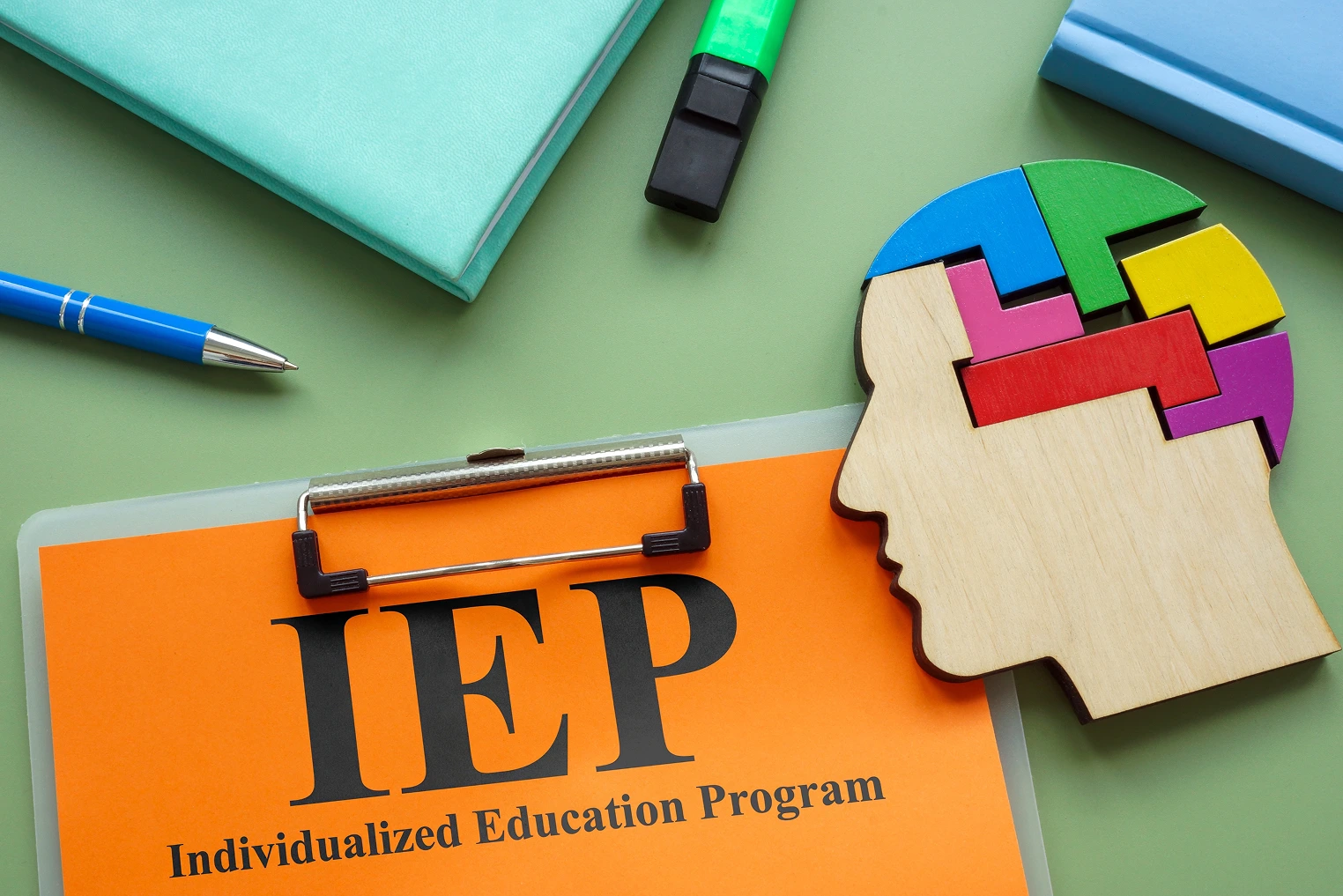Comprehensive IEP Assessments for School Districts
Creating a thriving learning environment starts with understanding each student’s individual strengths and needs. For school districts, IEP assessments are the foundation of that understanding.

This guide walks through everything you need to know about how we approach IEP testing, how our flexible services work, and why more districts are turning to Huddle Up for comprehensive, student-centered care.

What Are IEP Assessments?
At their core, these assessments identify a student’s strengths and challenges across academic, social, emotional, and developmental domains. They might evaluate communication skills, fine and gross motor ability, cognitive development, emotional well-being, and more. Based on these insights, educators and support teams can create specific, actionable goals that form the foundation of an Individualized Education Program (IEP).
It’s also important to distinguish between initial IEP assessments and ongoing IEP evaluations. Initial assessments occur before a student receives an IEP for the first time. They involve a full review of suspected areas of need. Ongoing assessments happen throughout a student’s educational journey and include re-evaluations every three years – or sooner if conditions change or concerns arise.
Every assessment we provide is grounded in these core goals: identifying real needs, documenting progress, and helping students gain skills and confidence.
Why Timely, Accurate Assessments Matter
Let’s look at the legal implications. Under IDEA, districts have strict timelines to complete evaluations, typically 60 calendar days from the time a parent gives consent. Missing those deadlines puts a district at risk for procedural violations, which can lead to state complaints or due process cases.

At Huddle Up, we are proud to have achieved a 96% provider retention rate, which is among the highest in the industry. By retaining our providers, we are able to help districts deliver consistent care to their students on IEPs. This means that the same providers are available for re-evaluations, IEP meetings, and progress tracking – giving students and schools a reliable partner.
In short, when assessments are timely, accurate, and handled by engaged professionals, districts avoid administrative overload, students stay connected to their goals, and everyone is more equipped to succeed.
Assessment Types We Provide
These evaluations are not one-size-fits-all; they’re customized to address the specific questions raised by teachers, families, and school personnel. By gathering precise data and contextual insight, we help districts make informed decisions that drive meaningful outcomes.
Speech and Language Evaluations
Our licensed speech-language pathologists assess expressive and receptive language, articulation, fluency, and pragmatics. The evaluation results support students who struggle with language development, social communication, or articulation delays. Results drive IEP goals related to classroom participation, reading development, and verbal communication. We also assess augmentative and alternative communication (AAC) needs for nonverbal or minimally verbal students, helping each child find a reliable path to expressing themselves.
%5D%201.png)
Occupational Therapy Assessments
Our licensed occupational therapists evaluate motor coordination, handwriting, visual-motor integration, and sensory processing. These assessments are essential for students who have difficulty with classroom tasks like writing, manipulating objects, or sustaining attention due to sensory sensitivity. Our occupational therapists also assess how students manage routines and transitions, providing recommendations for accommodations and supports that foster independence and school engagement.
Mental Health and
Social-Emotional Assessments
Our licensed clinical and social workers offer mental health evaluations that screen for anxiety, depression, emotional regulation, and behavioral health challenges. These insights are crucial for developing IEPs that include social-emotional learning (SEL) goals or behavior intervention plans (BIPs). We work closely with school teams to identify underlying emotional needs that may manifest as disruptive behaviors or disengagement in the classroom.
School Psychology and
Developmental Evaluations
Our school psychologists administer cognitive, academic, and behavioral assessments that identify learning disabilities, intellectual disabilities, autism spectrum indicators, and ADHD-related concerns. These evaluations are key for determining eligibility and shaping comprehensive service plans. Each report includes strengths-based language, culturally responsive measures, and specific recommendations that help school teams match services to real-world student needs.

Virtual & Onsite Flexibility
Can assessments be done remotely? Absolutely. Using secure, HIPAA-compliant platforms, our providers conduct virtual IEP evaluations that maintain the same level of professionalism and insight as in-person assessments. We’ve developed tech-enabled protocols that allow us to collect reliable data while engaging students in an interactive, comfortable environment.
Whether your district is fully in-person, hybrid, or remote, the team here at Huddle Up adapts to fit your needs. We design assessments that are accessible, accurate, and appropriate for each student’s learning modality.
IEP Assessment Process: What to Expect
- Referral & Consent
A student is referred for evaluation – either for an initial IEP or a re-evaluation. Once the family provides written consent, the timeline begins. - Assessment Planning
Our team meets with school staff and families to discuss concerns and tailor the assessment battery. We consider teacher input, parent observations, and prior records to decide what types of testing are needed. - Evaluation Administration
Providers conduct the assessments – virtually or onsite – depending on what’s appropriate for the student. This might include formal testing, classroom observations, and interviews. - Analysis & Reporting
We compile results into comprehensive, easy-to-understand reports that highlight both strengths and areas of need. These reports align with state and federal documentation requirements. - Goal Development & IEP Meeting
The findings are used to determine eligibility, craft measurable IEP goals if appropriate and inform the team’s recommendations. Our providers participate in IEP meetings, offer expertise recommendations, and collaborate on planning. - Ongoing Monitoring
Once services begin, we track progress, provide updated data, and offer re-assessment if new needs emerge. Every student’s growth is part of a larger picture.
Support for Educators & Families

The Role of Educators
Our team doesn’t simply collect this input through a form – we treat it as a key pillar of the assessment. We ask thoughtful questions, review classroom data, and maintain open communication with teachers throughout the process. Once the evaluation is complete, we provide educator-friendly summaries that break down the findings into actionable strategies, helping teachers align classroom instruction with each student’s unique learning needs.
We also provide optional debriefs or follow-up consultations to discuss how best to implement new accommodations or IEP goals. Our goal is to equip teachers with tools – not more paperwork – so they feel confident supporting the student post-assessment.
Engaging Families in the Process
We also offer translated materials, as needed, and flexible scheduling for virtual or in-person communication. Families are encouraged to participate in every step, and we offer resource packets, community referrals, and opportunities for follow-up support through Q&A sessions.
Working Together for Stronger Outcomes
When everyone is in sync, the IEP becomes more than a plan – it becomes a powerful roadmap for growth.
When everyone is in sync, the IEP becomes more than a plan – it becomes a powerful roadmap for growth.
When everyone is in sync, the IEP becomes more than a plan – it becomes a powerful roadmap for growth.
When everyone is in sync, the IEP becomes more than a plan – it becomes a powerful roadmap for growth.

Why Districts Choose Huddle Up for IEP Assessments
96% Provider Retention
When providers stay, so does quality. Students work with familiar professionals. Additional evaluations remain consistent. Re-assessments are easier. This level of continuity translates into better outcomes and fewer gaps in care.
Dedicated Coordination Team
We don’t hand off cases and disappear. Our coordination team works alongside districts to handle scheduling, document management, and provider communication. This reduces administrative burden for SPED directors and case managers.
Smart, Secure Technology
Our platform streamlines documentation, communication, and goal tracking. Reports are easy to access, progress is simple to monitor, and updates are never lost in an inbox. Technology should support care, not complicate it – and we’ve built ours to do just that.
When you choose Huddle Up, you’re getting a comprehensive, responsive team that takes pride in the success of your students and staff. We’re here for the long haul – and we’re here to help you thrive.
Get Started with IEP Assessments
We’re not a staffing agency looking to fill seats – we’re a specialized provider network built around student-centered care. Every assessment we provide is measurable, compliant, and outcomes-focused.

Together, let’s make sure every student gets the support they deserve – starting with the right assessment at the right time.
